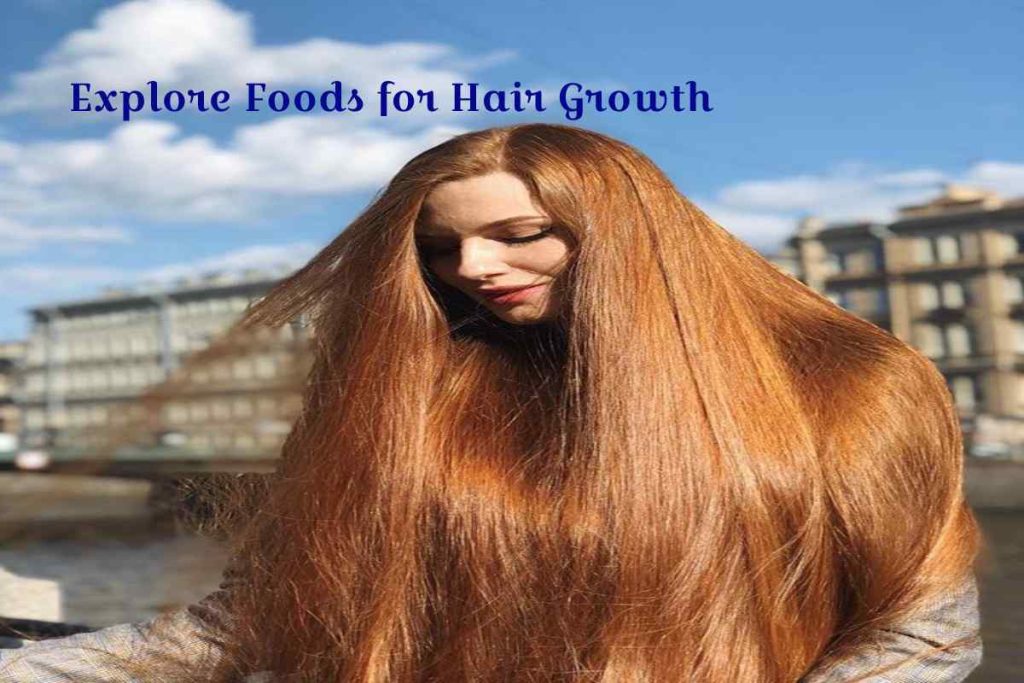Introduction
Beyond what you put in or do to your Hair Growth, many other elements contribute to having thick, beautiful, healthy hair, including stress, genetics, environmental influences, diet, and more. Bright, healthy hair frequently indicates general well-being and most likely means that your body is receiving the essential vitamins and minerals.
Your hair is shedding excessively, and looking thin, dry, and unhealthy may indicate that you need to change your hair care regimen, arrange a doctor’s appointment, or reevaluate the quality of your nutrition. Significant symptoms of underlying medical issues might be changes in the texture and thickness of Hair Growth. You could also have postpartum hair loss if you’ve just given birth, resulting from shifting hormone levels.
While it might not be avoidable, you can improve your situation by feeding your body in advance with nutrients that will ultimately promote quicker hair growth. That’s true, and healthy hair starts with what you put in your body and goes beyond using a fantastic shampoo and conditioner. For instance, eating primarily plants can help you acquire the essential nutrients to keep your hair, skin, and nails in top condition.
The Following Vitamins and Minerals Are the Greatest for Hair Growth:
- Healthy proteins
- Fatty acids omega 3
- Vitamins soluble in fat
- B-complex supplements
- Iron
One of the simplest ways to obtain these crucial nutrients is through a Mediterranean-style diet rich in fibre-rich produce, 100% whole grains, and healthy fats. Additionally, it will contain items that will maintain your gut bacteria. A healthy gut flora is crucial to support Hair Growth, skin, and nails. Start consuming more essential foods if you’re seeking strategies to include hair-healthy foods in your diet.
Diet For Hair Growth
Your hair yearns for good fats! So, consume a lot of salmon, avocados, and olive oil. These meals burst with critical fatty acids, which help replenish the natural oils on a dry scalp. Avoid crash dieting since you’ll deprive your body of the nutrients it needs for Hair Growth.
Foods To Eat for Healthy Hair and Hair Growth
For Shine: Salmon
Omega-3 fatty acids are abundant in fish, including mackerel, sardines, and salmon. Your body does not produce these beneficial fats, so you must get them through diet or supplementation. In addition to aiding in illness prevention, they are also required by your body for healthy Hair Growth and maintenance.
The Power of Greek Yogurt
Protein, the substance that makes up your hair, is abundant in it. Greek yoghurt also contains a component that promotes healthy blood flow to the scalp and healthy hair development. It is known as pantothenic acid or vitamin B5 and may help prevent hair loss and thinning. You could identify pantothenic acid as an ingredient on the labels of your hair and skincare products.
Fighting Brittle Hair with Spinach
Like many other leafy vegetables in the dark green family, spinach is incredibly nutrient-dense. Iron, beta carotene, folate, vitamin C, and a tonne of vitamin A are also present. Together, they contribute to a healthy scalp and mane and maintain moisture in your hair to prevent breakage. Want to change things up a bit? Another excellent green vegetable is kale.
Cereal with Added Iron to Prevent Loss
Losing hair might result from not getting enough iron. However, you may obtain this crucial component in soy, lentil products, fortified cereal, grains, and pasta. There is much of it in beef, particularly in organ meats like liver—additionally, dark leafy vegetables and shellfish.
To Combat Dull Locks, Eat Sweet Potatoes
Have dull, brittle hair that is dry? Beta carotene is a beneficial antioxidant that is abundant in sweet potatoes. Beta-carotene is converted to vitamin A by your body, and that helps prevent hair from becoming dry and drab. Sebum, an oily liquid produced by the glands in your scalp, prevents hair from drying. Other orange veggies, including carrots, pumpkin, cantaloupe, and mangoes, also contain beta-carotene.
Cinnamon for Movement
Add this spice to your coffee, toast, and cereal. It facilitates circulation, another word for blood flow, and your hair follicles receive oxygen and nutrients in this way to improve Hair Growth.
Developing Eggs
When you consume eggs, you satisfy all of your protein and iron needs. They contain high levels of biotin, a B vitamin that promotes hair growth. Losing hair might result from not getting enough of this vitamin. Additionally, biotin supports the health of weak fingernails.
Shellfish for Fullness
These are zinc rich. You may lose hair, even in your eyelashes, if your diet is deficient in this element. Zinc is necessary for hair-building cells to function at their peak levels. Beef, crab, lobster, fortified cereal, and other seafood also contain this mineral.
The conclusion
Your Hair Growth may be impacted by what you consume.
Vitamins A, C, D, and E, zinc, B vitamins, iron, biotin, protein, and vital fatty acids are some of the nutrients needed to support healthy Hair Growth and prevent hair loss.
Fortunately, treating a nutrient deficiency in any of these substances may assist in treating hair loss and speeding up hair growth.
